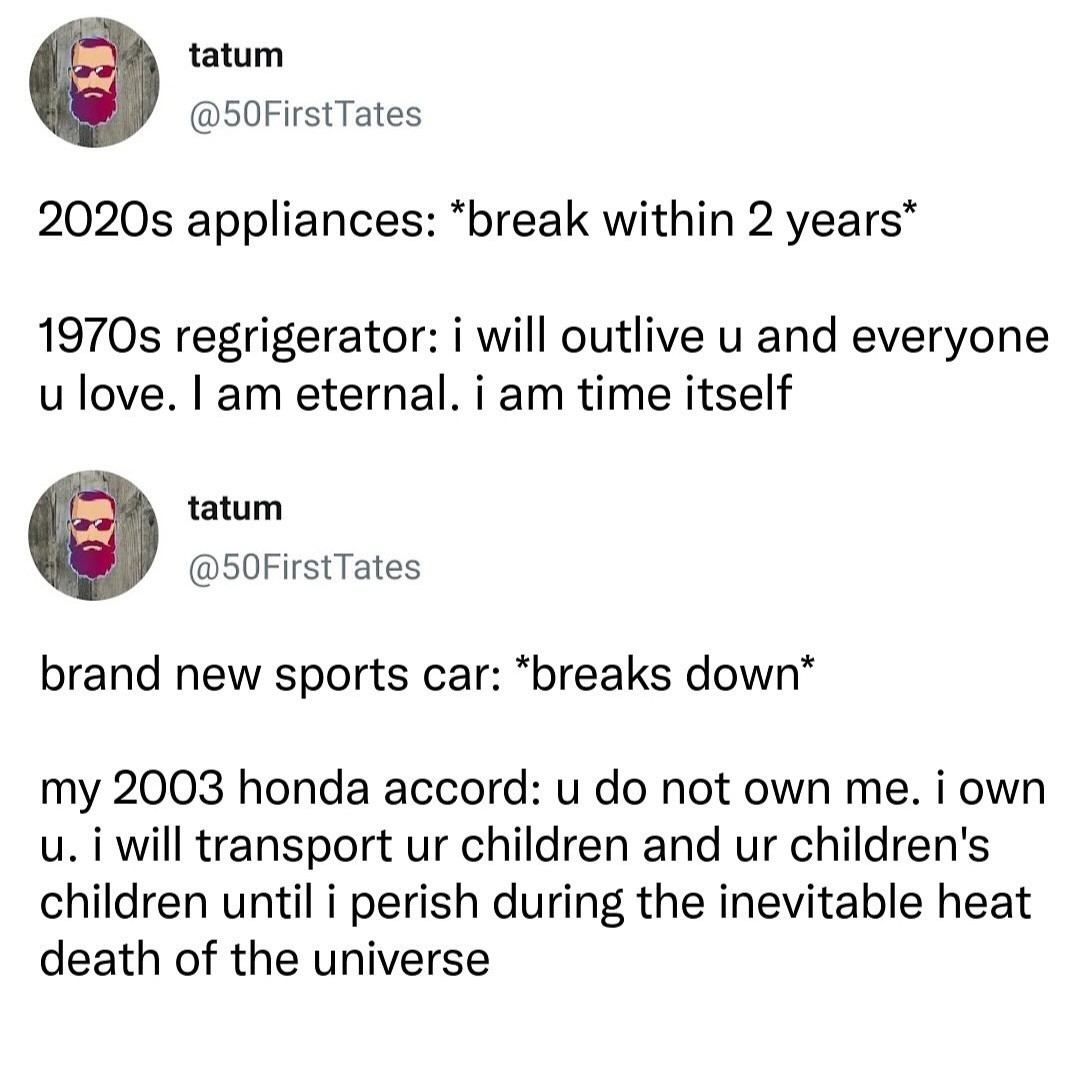this post was submitted on 01 Jul 2025
395 points (95.2% liked)
Cars - For Car Enthusiasts
4628 readers
8 users here now
About Community
c/Cars is the largest automotive enthusiast community on Lemmy and the fediverse. We're your central hub for vehicle-related discussion, industry news, reviews, projects, DIY guides, advice, stories, and more.
Rules
- Stay respectful to the community, hold civil discussions, even when others hold opinions that may differ from yours.
- This is not an NSFW community, and any such content will not be tolerated.
- Policy, not politics! Policy discussions revolve around the concept; political discussions revolve around the individual, party, association, etc. We only allow POLICY discussions and political discussions should go to c/politics.
- Must be related to cars, anything that does not have connection to cars will be considered spam/irrelevant and is subject to removal.
founded 2 years ago
MODERATORS
you are viewing a single comment's thread
view the rest of the comments
view the rest of the comments

It’s okay, we’ve all been gotten by this too. It’s easy to look at an older piece of technology that has survived, and ascribe that to ‘things used to be better’ while ignoring the materials advances or better engineering that doesn’t require massive buttresses to stop building falling over, or why using MIM instead of forging is better for 95% of use cases, or how wastefully overbuilt things were in the past because they didn’t know how to build efficiently.
There is a flipside of planned obsolescence and value engineering something to death where the wrong material/spec is decided for profit reasons… but that is not a new phenomenon
This is mostly value engineering and added complexity, not survivorship bias.
People learn a single concept and think it's the one and only. Suddenly robustness and complexity don't exist.
So you’re saying that survivorship bias also applies to survivorship bias?